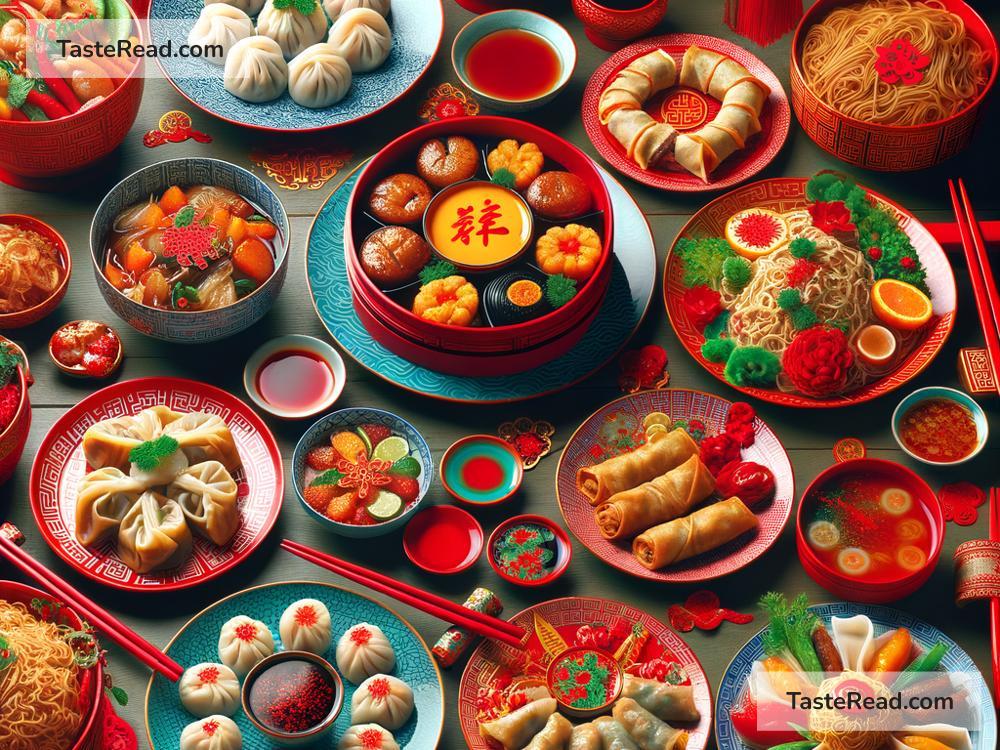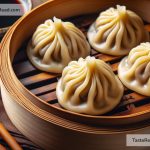How Chinese Food Symbolizes Good Luck During Festivals
In the vast and vibrant tapestry of cultures around the world, food often emerges not just as mere sustenance but as a profound means of celebration, connection, and even good fortune. This rings particularly true in Chinese culture, where festivals are incomplete without the presence of certain dishes, each carrying its unique symbolism. During these festive times, the traditional Chinese cuisine transforms into a banquet of luck, prosperity, and good fortune, linking deeply with cultural beliefs and ancient legends.
Symbolic Foods and Their Meanings
1. Dumplings
Dumplings, or ‘jiaozi’, are a staple in Chinese New Year celebrations. Shaped like ancient Chinese money, dumplings symbolize wealth and prosperity. Families often gather on New Year’s Eve to prepare dumplings, embedding coins in some as a fun way to wish the finder extra luck and wealth. Eating dumplings during the festival is believed to bring a prosperous year ahead.
2. Fish
The word for fish, ‘yu’, sounds like the word for surplus or abundance in Chinese. It’s a must-have dish for Lunar New Year, symbolizing an increase in prosperity. Serving a whole fish, including the head and tail, represents a good beginning and end for the coming year. Traditionally, some of the fish is saved for the next day to signify the overflow of wealth.
3. Noodles
Long noodles, or ‘changshou mian’, translate to longevity noodles. They stand for a wish for a long and healthy life. During birthdays and special festivals, these uncut noodles are served to represent the eater’s life stretching out ahead of them, full of potential. It’s a delicious way of blessing someone with longevity.
4. Glutinous Rice Cakes
Known as ‘nian gao’, these sticky sweets carry a message of growth, success, and advancement because ‘nian’ sounds like “year” and ‘gao’ is a homonym for “tall” or “high”. Eating glutinous rice cakes during the Chinese New Year is particularly popular as it indicates raising oneself higher in the coming year. Teachers, businessmen, and students find special significance in this tasty treat.
5. Oranges and Tangerines
Symbolizing wealth, luck, and abundant happiness, oranges and tangerines are prevalent during Chinese celebrations. Their bright color resembles gold, suggesting prosperity. Additionally, the Cantonese word for tangerine, ‘gut’, sounds like the word for luck. It’s common to exchange these fruits during the New Year as a token of good wishes.
6. Mooncakes
During the Mid-Autumn Festival, mooncakes are indispensable. These round pastries symbolize reunion and completeness, echoing the full moon’s appearance on the night of the festival. Families enjoy mooncakes while admiring the moon, celebrating togetherness, and wishing for unity and harmony.
7. Sweet Rice Balls
Known as ‘tangyuan’, these are eaten during the Lantern Festival, marking the end of the Lunar New Year celebration. Their round shape represents family unity, completeness, and harmony. Serving these sticky, sweet treats ensures that families remain close-knit and affectionate toward one another.
The Role of Food in Preserving Culture and Traditions
These symbolic foods are more than just delicious dishes; they are vessels of tradition, history, and cultural identity. They are a means through which stories, values, and wishes for the future are passed from one generation to the next. As families come together to prepare and enjoy these meals, they reinforce bonds, share love, and impart valuable lessons to the younger members about resilience, hope, and gratitude.
Moreover, the preparation and consumption of these foods during festivals are steeped in rituals and practices that have been refined over centuries. This not only preserves a rich cultural heritage but also provides a sense of continuity and belonging among community members.
Embracing Good Luck and Prosperity
In essence, Chinese festival foods are much more than the sum of their ingredients. They embody wishes for health, wealth, and happiness. With each dumpling, noodle, or slice of cake, there’s not just a flavor to savor but also a blessing to embrace. They remind us that in the heart of tradition lies not only the preservation of the past but also the nourishment of our hopes for the future.
So, the next time you bite into a mooncake or twirl a noodle around your fork, remember, you’re not just enjoying a meal; you’re partaking in a legacy of good fortune and well wishes, crafted with care and shared with love, transcending the boundaries of time and place to bring us all a little closer.
Through these culinary traditions, festivals in China become a time not just of feasting, but of reflecting on the year past and welcoming the year ahead with open arms and hopeful hearts. It’s a beautiful reminder that sometimes, good luck and prosperity are just a bite away.

